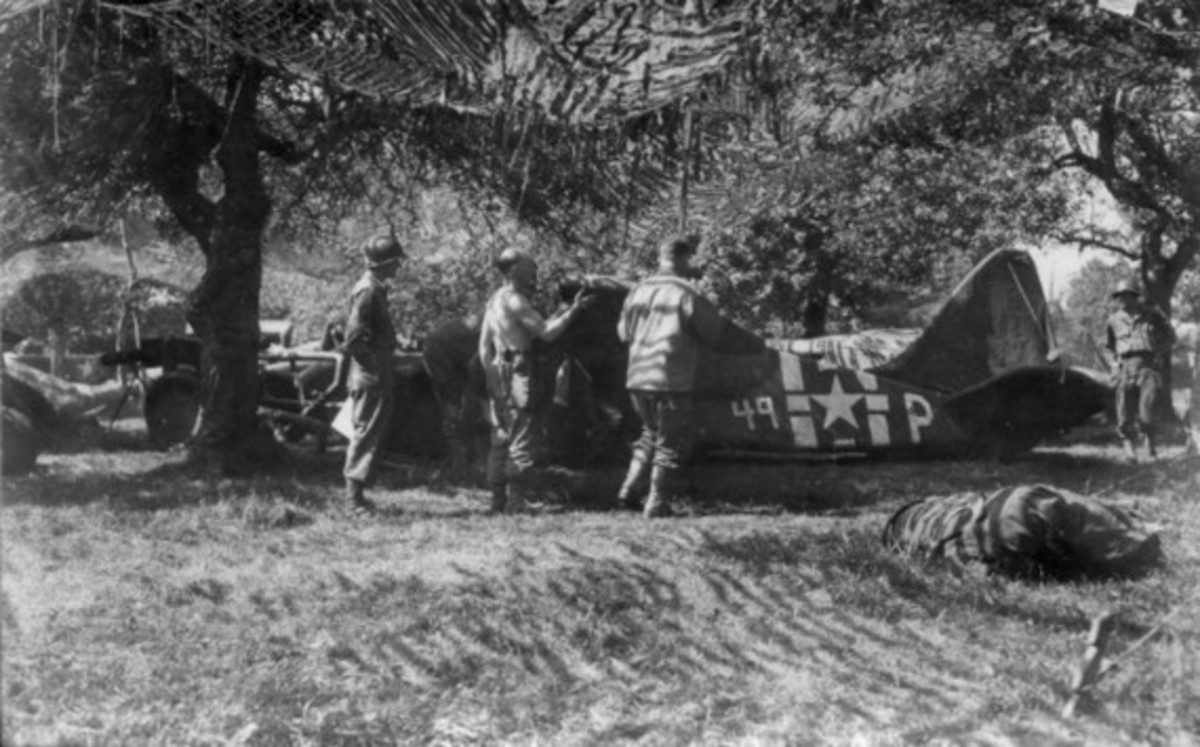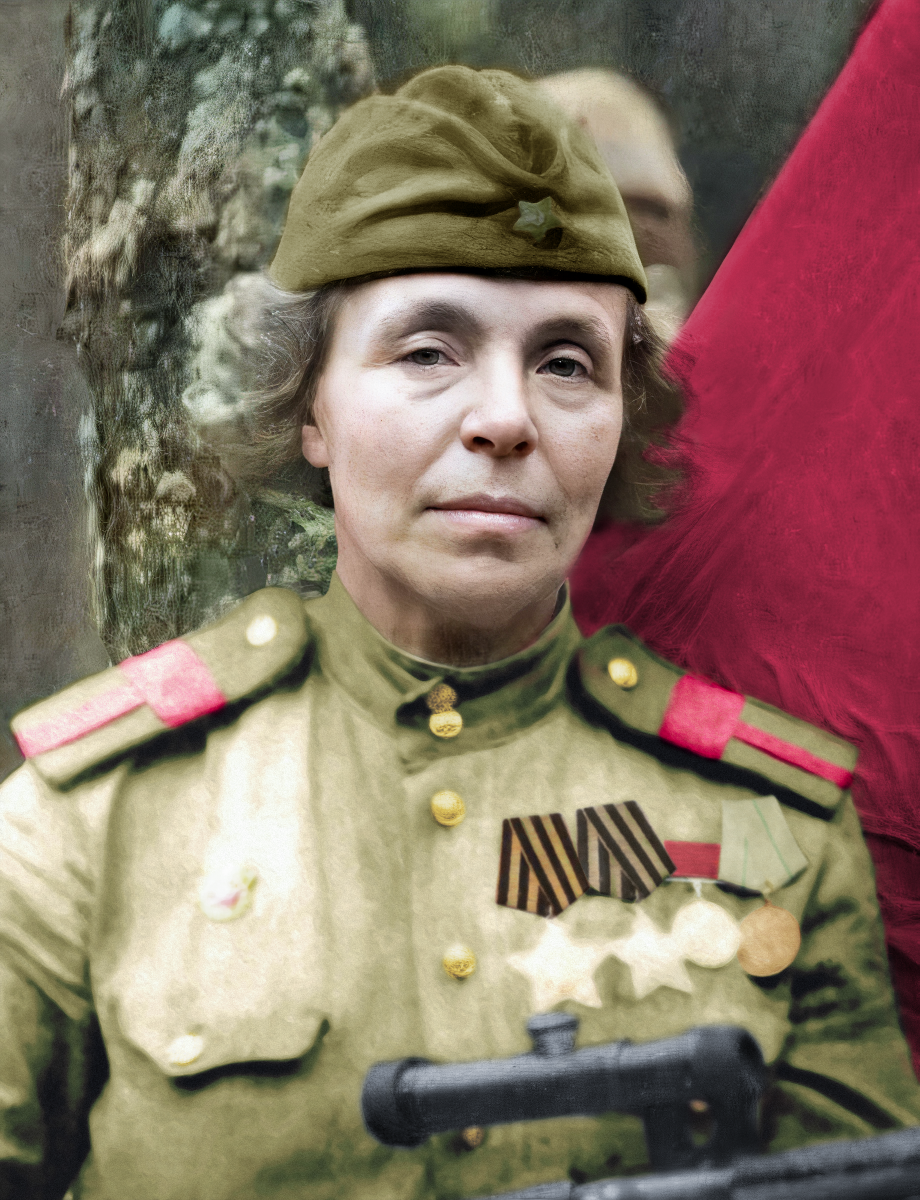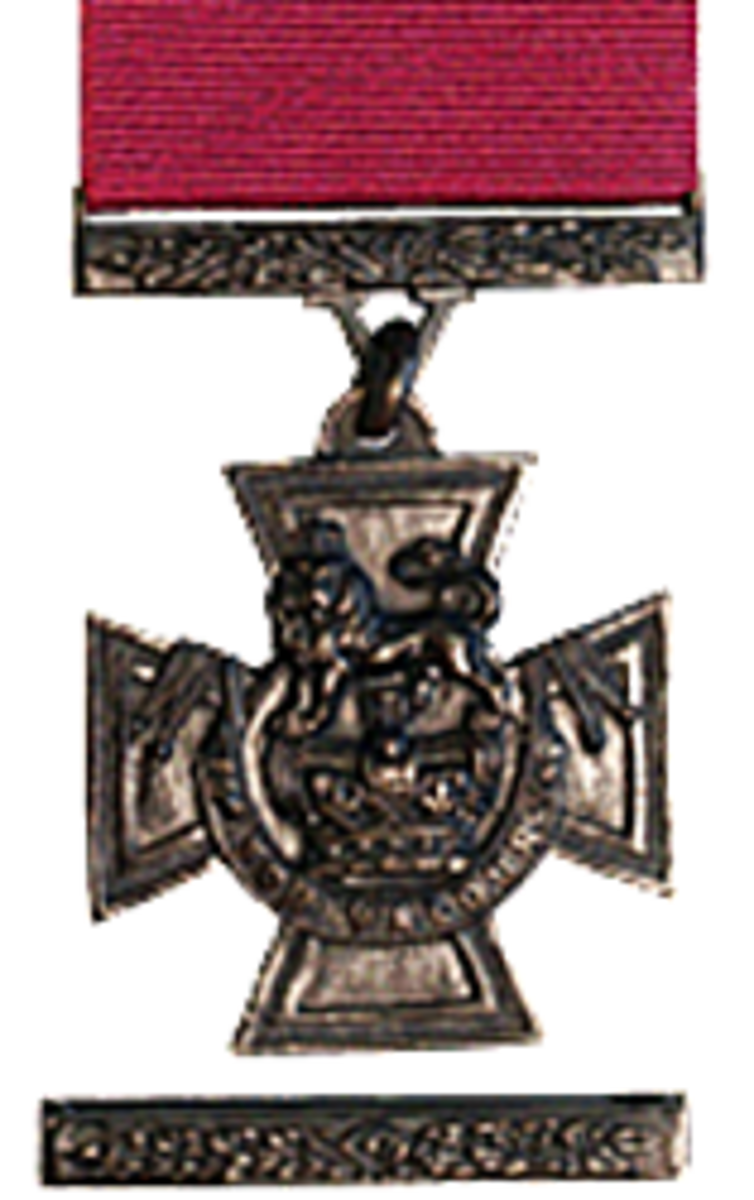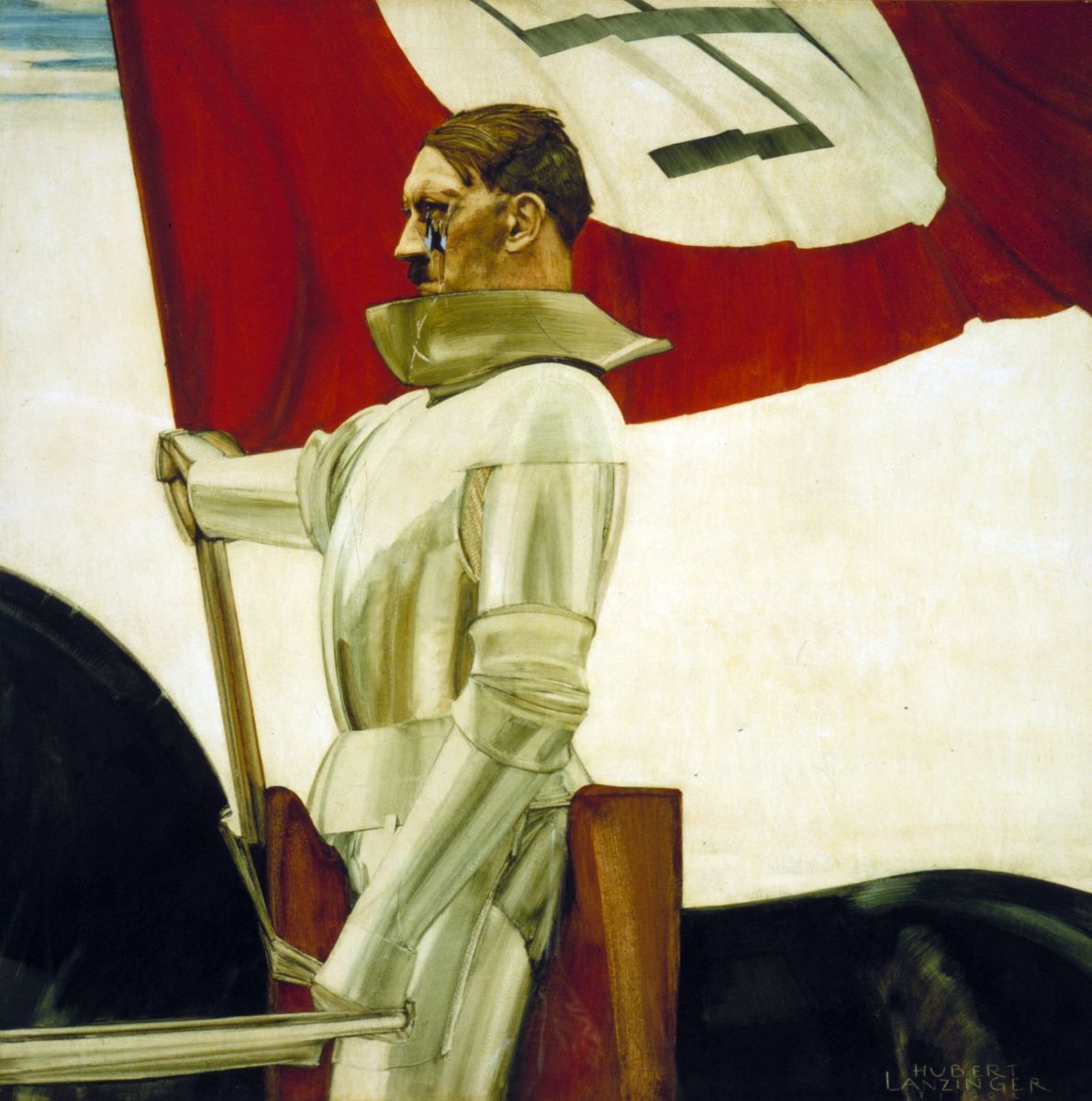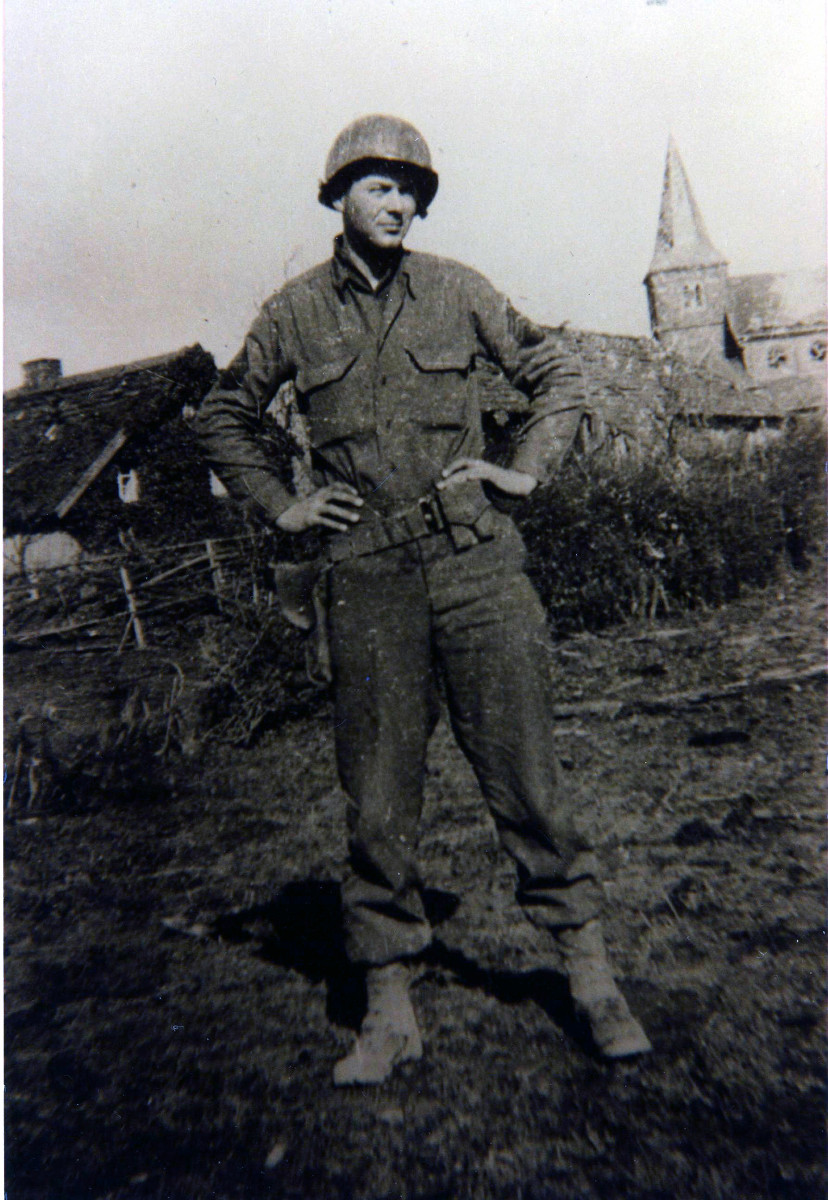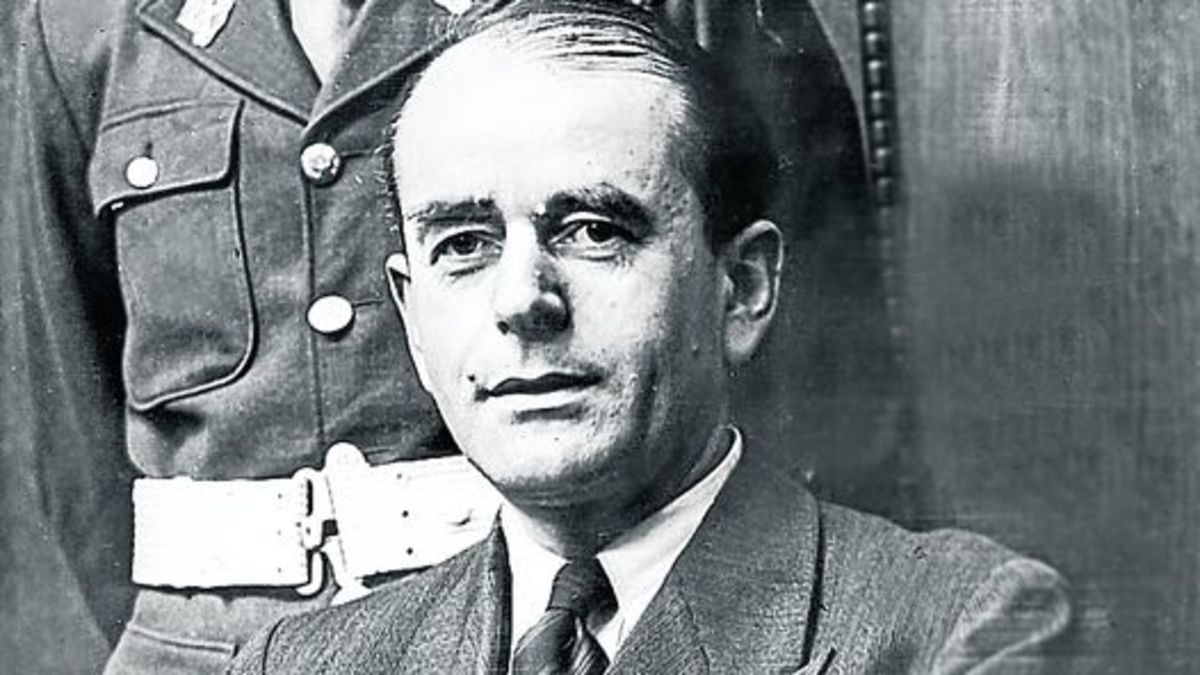- HubPages»
- Education and Science»
- History & Archaeology»
- History of the Modern Era»
- Twentieth Century History
Child Evacuees in World War 2 - Some memories from my childhood
They crowded onto buses and trains and ships
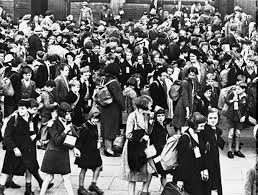
The mass exodus begins
Child Evacuees in World War Two – Some Childhood Memories
Hanging Houghton, Northamtonshire as remembered from seventy years ago.
I was evacuated from London to Hanging Haughton at the age of six. It was my second time away from that war-torn city. I recall being taken from a bus by a lady I was later to learn was Mrs. Clark. She was to become my foster mother for the next year. She simply stepped onto the bus I was on and said, “I’ll take this one.” In that moment I had a new mother and a new family. I had more than one new family between 1939 and 1945. The bus ground away and I was whisked into a new world, for I come from what was then the world’s greatest city to something which, to me, was so very different indeed.
A bombed out house - and the reason to go
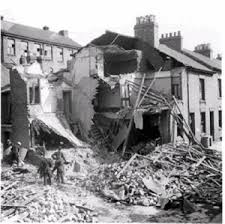
I moved from the world's greatest city to a tiny hamlet
Mrs. Clark lived in the end house of a block of three, possibly four attached homes. These were old even then. My guess, they’d been built in the 19th Century. They lacked running water and the toilets were out-houses down the back garden: long-drops or buckets were used. My bedroom was a tiny attic room right at the top corner of the end house, the home nearest to the main street. I recall a back kitchen, a lounge room (parlor) but cannot remember the bedrooms. As a little fellow, I spent a great deal of time outside. I was virtually only indoors to eat and sleep.
Northhamptonshire - a world away in those days
To describe the town as I remember it:
Turning off the main road to the right, one could quickly walk the distance to the village proper. It was just two or three hundred yards away. On the right hand side there was nothing but a high fence or wall until one reached the gate-keepers little building. I recall tall, possibly bamboo canes at the corner of the main road and what is now called Manor Road. A friend and I sometimes climbed the fence to cut those canes to play with. My friend would balance the long, straight canes on his nose, something I never learned to do
I could have been among this lot...
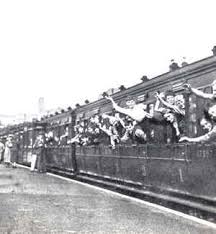
Jelly and cup cakes - wow!
At the gatehouse a gravel driveway led to a manor house. I wasn’t allowed in there and was invited only once. This was to a child’s birthday party. I think there were about six children there and we had jelly, biscuits and cup cakes – something I’d probably had only once or twice in my life before that time.
There was no mains water at Hanging Hougton
On the left hand side of the road, walking towards the village, the first building was the old schoolhouse. It’s still there and is now a home. Between the school house and the gate-house was an area you might call the village square. In the middle of this area stood a rather ornate-looking cast-iron water pump. I think it was mounted on a block of some sort. Housekeepers would come here with their galvanized buckets to collect water for their homes. It was a place where women would gather to talk a little.
Some left for overseas British Empire Countries
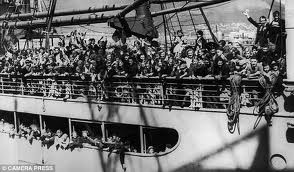
We had a well in our front garden
The water table must have been very high, for in the front of the home I lived in I found a round wooden cover which covered a shallow well. I recall the water was just below the cover. I didn’t tell Mrs. Clark of my discovery for I thought I might have been considered naughty for having removed that cover. Something told me she would have considered it dangerous.
A tiny town indeed. Even calling it a village would have been kind
Beyond the square and off to the left was the block of attached homes I lived in. There were not brick, possibly mud-brick or stone. But if one proceeded straight ahead one came into the main street – if you could call it that. There were probably three or four houses to the left and the same number to the right. The village main street wouldn’t have stretched more than a hundred yards.
Northhamptonshire, around Hanging Hougton where I was billeted
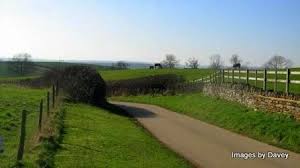
A farm house in the centre of town with dairly behind it
On the right, about the second or third house down, was a farmer’s home. My good friend, Peter, who was about five years my senior, lived there with his father. His father was a widower. Behind the farmer’s residence were the milking shed and the place for processing cream and making cheese. Behind this again was a pig sty and chicken runs. There was also, the huge mound where the cow dung was placed. We used to wheel out from the cowshed in wheelbarrows. As I recall it, the chickens ran everywhere down the back. They certainly were ‘free range’ in its broadest sense and only locked away at night to keep them safe from foxes.
The milking cows were well-behaved and knew the routine
That was about it. The street came to a halt. There was a broad lane which narrowed down quite quickly running off to the left. The fences were wooden here. Directly ahead was a fence with a gate and a track which led up a hill to another famer’s property. The lane to the left meandered down to another field, a steep field, in which Peter’s father kept his score of so of milking cows. Peter and I would go down to this field and bring in the cows twice a day. They would simply follow us up the lane to the farm. And of course, the cows had a pecking order and some of them had names. The lead cow always summoned the others with a call if we turned up early. Conversely, they’d be waiting patiently, three abreast behind the gate if we were late. They certainly knew the routine.
I think I lived in this house; the one right down the further end
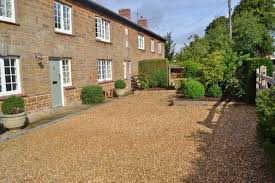
Two-dozen cows, hand-milked twice daily...then there was the other work
The cows, incidentally, were all milked by hand. There was no milking machine. It was hard labour but, as a little fellow, I enjoyed helping where I could. Peter, of course, worked as hard as a grown man despite his age. After milking, we’d take the cows back to the field, return and then hose out the shed. I think we used a stirrup pump to get the water pressure up, or it could have come from a tank. All of this labour resulted in two full churns of milk ready to be taken away every day.
It's culture shock to see rabbits being skinned when you're six years old
Your need to remember that the Second World War was on and food, especially groceries were scarce. However, living in that village had its advantages. We had wild-rabbit a bit, more chances of fresh eggs than the average. I cannot remember our fare but we lived okay.
Whilst I was there we twice had visits from soldiers. Once there was a party at Mrs. Clark’s home when some British Tommies, who were friends of Mrs. Clark’s husband, came for the evening. It was Christmas, I think. Her husband wasn’t there, to my knowledge. I recall the soldiers laughing as they found the iced-cake they’d brought along so hard they could not cut it. The soldiers were throwing it up in the air and letting it fall on the stone floor, trying to shatter it. I did not understand, of course, but I guess they were all a little tipsy. I recall eating some of that cake with its thick, rock hard icing.
My school. Built in 1860, it served as both school and church
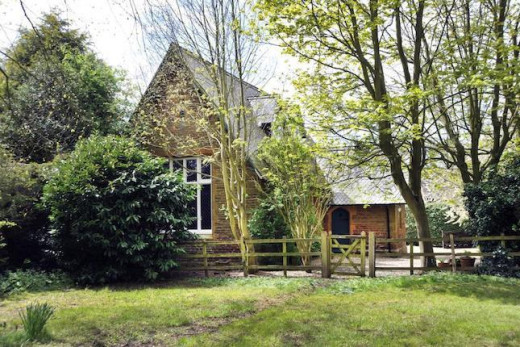
The American soldiers were a good-natured lot
The second time was when a squad of American G.I.s came and camped between the tiny area behind our house and the first house on the left hand side of Manor Road. They brought with them a 40mm Bofors anti-aircraft gun. Better – they allowed me to play on it every day they were there. I’d swing its barrel up and down, and this way and that. No danger, of course, because it wasn’t loaded. But every morning, early, they’d be at action stations, manning that gun and huddled in their trenches behind sandbags, rifles pointed in case an enemy did attack at dawn
In the country you're expected to help out
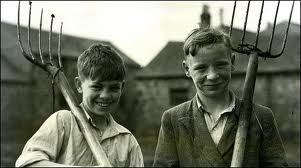
"Better not touch that little gun, sonny."
The Americans became quite concerned one morning though, when I lay down behind their BAR (Somewhat like a Bren gun) This gun was loaded and they joked among each other but seriously scolded me for getting beside this weapon. I doubt they were there more than a week. One morning I got up early and the little field was empty. They’d slipped away during the dark hours. It was as if they’d never been. To this day I wonder if they survived the war.
Evacuee kids in a field in Devon, obviously having fun
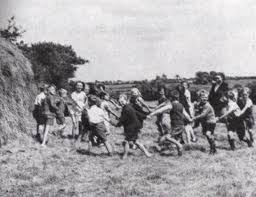
'Me Lord' owned the lot, I think
In 1951 I moved with my family to Australia. Australia is very different from England. There are no dukes, earls, barons and even squires out here. Australia is an egalitarian society. No touching the forelock here. But Hanging Houghton was, I think in retrospect, the property of the family who lived in the Manor House. I think the farmers paid for the right to farm, and the homes paid rental, but I’m not absolutely sure of that. But I sensed deference when the Manor people were being mentioned.
Evacuee kids working in the fields.
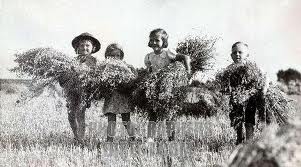
World War Two was a long time ago
I have no idea of family names of people living in the Hanging Houghton at that time other than the Clarks. My farmer’s son friend was named Peter. The gate keeper’s son, I think, was called James. There may have been another little boy name Albert. This is all pretty vague, but I was only six to seven years old at that time. I also recall a white house somewhat to the south of us on the main road. A girl of about eleven years of age lived there.
Paddy was the friendliest and most docile of nags
I know the farmer owned a huge Clydesdale we called, Paddy. He’d come over to a fence so we could climb two or three kids at a time, on his broad back. A second horse had had to be put down shortly after I arrived. So Peter’s father at that time owned a horse, a bull with a broken horn, and about twenty cows, some pigs, and lots of chickens. There were sheep, but I think they belonged to another nearby farm.
Our foster mothers cried when we left to go back home
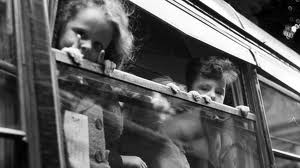
I wandered wherever my legs would take me
I also have a vague recollection of a railway line somewhat off to the north. I recall walking across it, but I cannot be sure where it was. What I do recall is that I was very aware of all of the fields and woods around that little hamlet. For, as I said earlier, I spent most of my time out of doors. I knew where to find the bird nests in the hedges, where the haystacks to play on were. Also, I knew where the wild honey bees’ nest was in the hollow log up the street.
Signs put up to get mothers to send their kids away
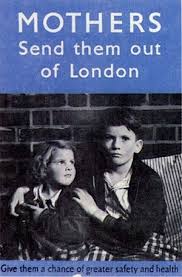
The Italian POW handed me a honey comb straight from the wild bee hive
I recall the days a dozen or so Italian prisoners of war, accompanied by one lone old man with a pitchfork as guard, came into the street to do some repairs. They were a cheerful, laughing lot glad to be free of the war I suspect. One of them must have been a bee-keeper in his life before the war because he reached into that hollow log and pulled out several pieces of honey comb. He gave me a piece, patted me on the head a used words like ‘bambino.’ As I recall it, I didn’t eat it; too many bees flying of it.
Then one day my father arrived. He was a soldier and in uniform. He’d come to take me home. We travelled back to London by bus and train. There are remained for some months before I, along with a myriad other children, were once again evacuated. This time it was to Lancashire. But that is another story.
More on the writer
- Tom Ware Public Speaking The Prince of Storytellers
Tom Ware Public Speaking! Tips, events and videos to help you become a gifted speaker. Visit now!

